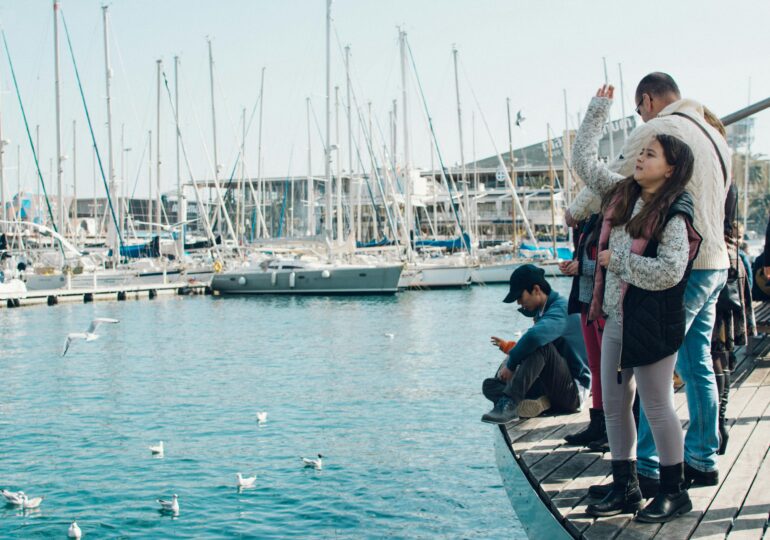The cruise port in Barcelona will close two of its terminals as part of a broader effort to combat tourist overcrowding in the city.
The measure, which will come into effect next year and will reduce the number of operational terminals to five, is part of an agreement reached with the City Hall, according to an official statement quoted by CNN.
Investments for sustainable tourism and green infrastructure
The agreement also includes funding for a study that will analyze how cruise ship passengers move around the city - a first step, according to authorities, towards developing a sustainable mobility plan.
In addition, the modernization of port infrastructure is targeted, including the installation of an onshore electrical supply system for docked ships, allowing them to turn off their engines and reduce polluting emissions.
In total, the plan involves investments of 185 million euros, carried out through a public-private partnership.
The decision is part of a broader series of measures aimed at reducing the impact of mass tourism, which has generated increasing dissatisfaction among locals, culminating in a symbolic protest in July 2024 when several tourists were sprayed with water pistols.
Locals accuse: overcrowding and unaffordable housing
Barcelona's popularity among visitors has led to complaints from residents about overcrowding and the lack of affordable housing, as more and more apartments are being converted into short-term accommodation spaces.
In 2024, the Port of Barcelona - Europe's largest cruise port - reported 1.6 million "transit" passengers. Most disembark in the morning to visit the city and return aboard in the afternoon.
The large influx of people in areas such as La Rambla boulevard and the Gothic Quarter, the oldest in the city, is one of the main causes of tensions between tourists and locals.
A process started back in 2018
In October 2023, authorities had already closed the northern terminal of the cruise port as a result of an agreement that involved moving them further away from the city center. The measure was preceded by an agreement signed in 2018 between port authorities and the city council, aiming to relocate cruise activities from urban areas.
Also as a result of that agreement, the Maremagnum terminal was closed, with the area being transformed into a leisure space, featuring restaurants, bars, a nautical club, an aquarium, and a mall.

